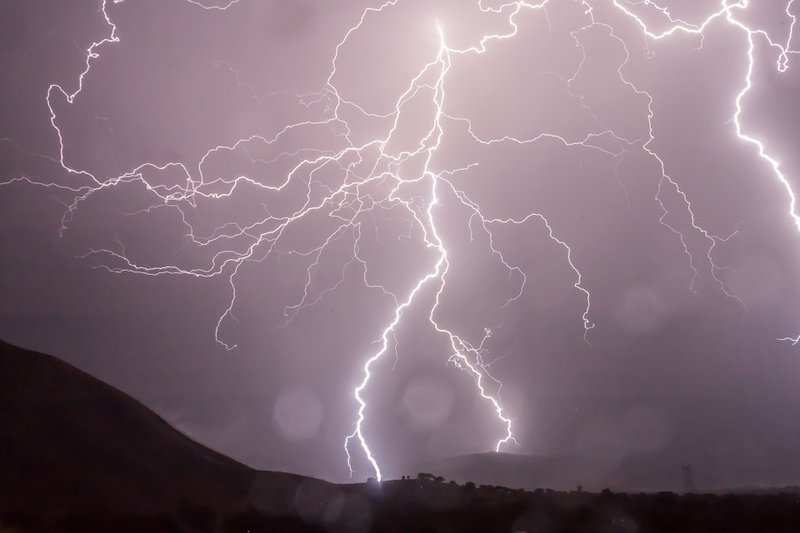Researchers believe lightning may have sparked life on Earth
Updated | By El Broide
A new study has suggested
that millions of lightning bolts gave the world the spark it needed to create
life.

In an exciting new study, researchers believe that millions of lightning strikes may have been just what life needed to begin on Earth.
According to the study, published this week in the journal, Nature Communications, phosphorus is one of the key ingredients needed for life as we know it and researchers believe that a lightning storm that happened four billion years ago may have unlocked the right amount of phosphorus to create the foundation for life.
“Phosphorus is needed in the molecules that form basic cell structures and cell membranes and even makes up the phosphate backbone of DNA and RNA,“ Benjamin Hess, study author and graduate student at Yale University in The Department of Earth & Planetary Sciences, says.
READ: Take a look inside the world’s first space hotel
This element, however, was elusive in the fact that it was trapped inside minerals.
"Most phosphorus on early Earth was trapped in minerals that are essentially insoluble and unreactive, meaning they couldn't be used to make biomolecules needed for life," Hess said. "Lightning strikes provide a new mechanism for creating phosphorus in a form that can make important compounds for life."
CNN reports that previously, it has been thought that meteorites delivered the necessary elements for life to appear on Earth because they have been known to contain schreibersite, a phosphorus mineral that can be dissolved in water.
This would mean that after the right amount crashed into
the planet, that schreibersite could have provided the right amount of
phosphorus.
READ: Meet the remarkable puppy born with six feet and two tails
However, as life began around four billion years ago, fewer meteorites were impacting Earth.
Hess continues explaining that schreibersite has another source in glasses called fulgurite - the glass that forms when lightning strikes the ground. "Lightning is a mechanism that does not necessarily diminish through time as the commonly accepted source, meteorites, do," Hess continues. "This mechanism may be very important for considering the formation of life on Earth-like planets after meteorite impacts have become rare."
He adds “Lightning has also been a subject of interest for scientists when thinking about life on early Earth, because it leads to the creation of gases like nitrogen oxides, which also played a part in the origin of life.”
The study explains that today, we experience 560 million lightning flashes per year but on early Earth, that number was significantly larger anywhere between one and five billion annually, with 100 million to one billion of those striking the ground.
“Over a billion years, that could have led to 1 quintillion lightning strikes -- and a lot of phosphorus,” Hess concludes.
Image courtesy: Pixabay
Show's Stories
-
Protecting teens online: A guide to parental controls
Parents, it's time to take control of your teen's online safety. Here’s ...
Stacey & J Sbu 1 day, 11 hours ago -
Woman shares how she bought her first car with cash at 24
What an inspiration to those trying to save and make ends meet. It just ...
Danny Guselli 1 day, 12 hours ago